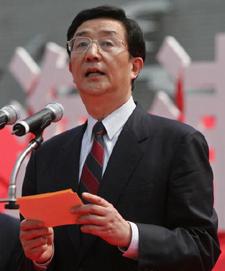WASHINGTON DC - Recently, China’s Ministry of Information issued a notice requesting mobile phone companies to conduct surveillance and keep records of users’ text, voice, and picture messages (SMS). Below is the feedback from several Voice of America (VOA) listeners regarding this move to censor SMS spam.
Tightening of Control is Necessary
Mr. Zhang from Hebei and Mr. Yang from Hunan believe that it is necessary for the Chinese government to tighten its control of SMS.
Mr. Zhang: “I think there is a reason for China to tighten its control of mobile phones. Every day I receive messages like ‘Are you lonely?’, ‘You’ve won a prize’, etc., and this is a great nuisance to mobile phone users. As for political messages, I receive very few of them.”
Mr. Yang: “There is a need for tighter control of mobile phone information because I frequently receive junk messages . Hence, I agree with the measures taken by the government.”
It’s Not a Matter of Junk Messages
On the other hand, Mr. Liu from Tianjin thinks that the main motive of the authorities is not reducing the number of junk messages we receive.
He says, “I think that essentially, there is a fear that the masses may share their feelings of discontent and incite others who feel the same – issue of junk messages being a nuisance is not so much the primary concern.”
Censoring the Flow of Other Information
Mr. Chen from Hubei: “If other countries are not doing this [controlling SMS], I don’t think it’s necessary for China to do so either, as this will trigger the public’s imagination. By preventing the flow of obscenities, other information will be censored in the process.”
Mr. Zhao from Jilin: “Controlling SMS is one important way to prevent the free flow of information. The government is extremely covert in its ways of preventing people from communicating. For 20 years, they talked about curbing corruption; if only they would divert 50% of the energy from the six-year-long persecution of Falun Gong into the problem of corruption, it would have been solved.”
Obstructionist Policy
Mr. Ding from Shandong: “All media in China are state-controlled. To learn the truth about many issues, we can only turn to the foreign media. However, the state prevents us from accessing news websites like Voice of America and I believe this is another form of government censorship. This is obnoxious and violates our human rights.”
The CCP’s Paranoia
Mr. Tang from Hubei: “Currently, the CCP fears that the masses will speak up. The CCP is in a crisis now and anything threatening its interests will be nipped in the bud. Its ways are very high-handed.”
Controlling Free Speech
Mr. Xue from Sichuan: “On the surface, the measures are aimed at reducing junk messages, but the core goal is restricting our freedom of speech. Obscene messages are not the issue; rather, the focus is on messages that the government doesn’t want heard, especially sensitive news. In recent years, I find that our communications are being restricted even more tightly. I find that this society is regressing, especially since liberalization. Looking at the current state, I feel extremely frustrated.”

